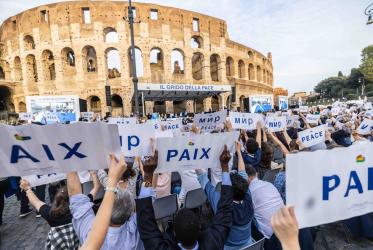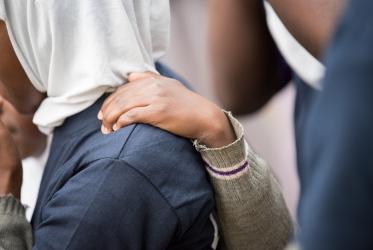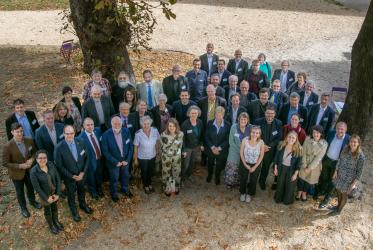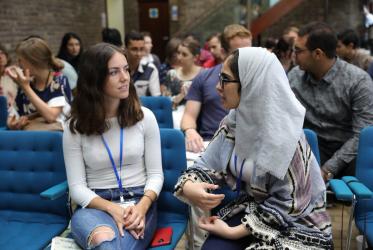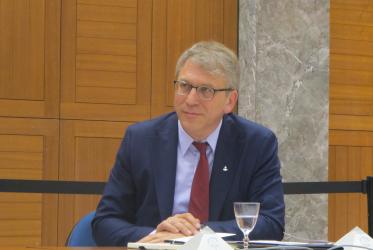Displaying 1 - 20 of 34
Rethinking Ecological Relationships in the Anthropocene era
11 - 13 February 2021
WCC well-represented in Religions for Peace leadership
07 October 2019
Fr Alexi - a peacemaker in Syria
21 December 2018
Romani people seek “lives of decency, dignity, and justice”
27 September 2018
Paving the way for ecumenical studies, learning English in Bossey
24 September 2018
What does ‘prudence’ mean for dialogue and peace-building?
16 November 2016
Religious leaders of many faiths talk peace in Assisi
21 September 2016
Religion: Way of war or path to peace?
30 June 2016
WCC/UN conference calls for coordinated action on refugee crisis
20 January 2016
WCC Executive Committee works toward a future of peace and justice
19 November 2015
